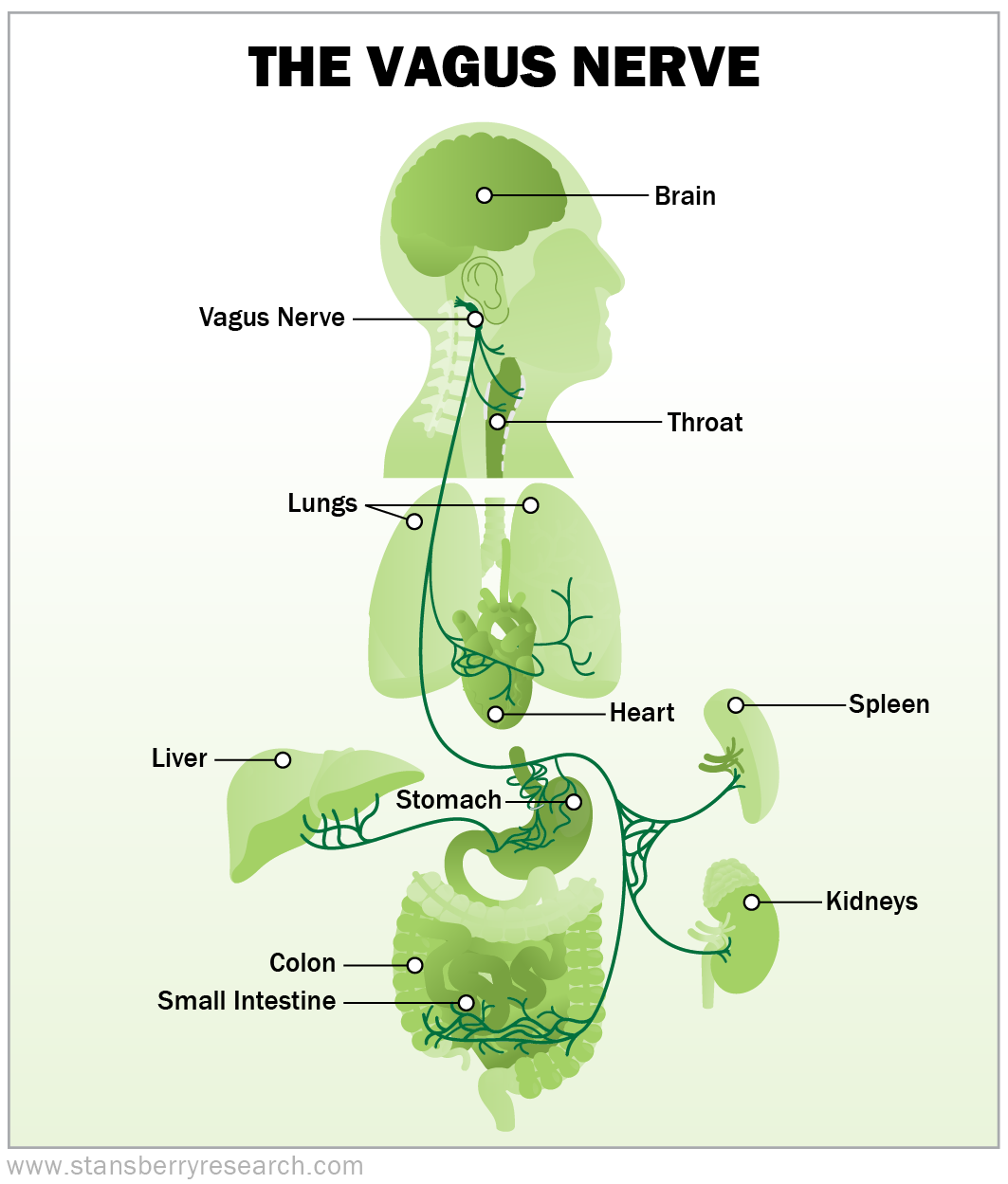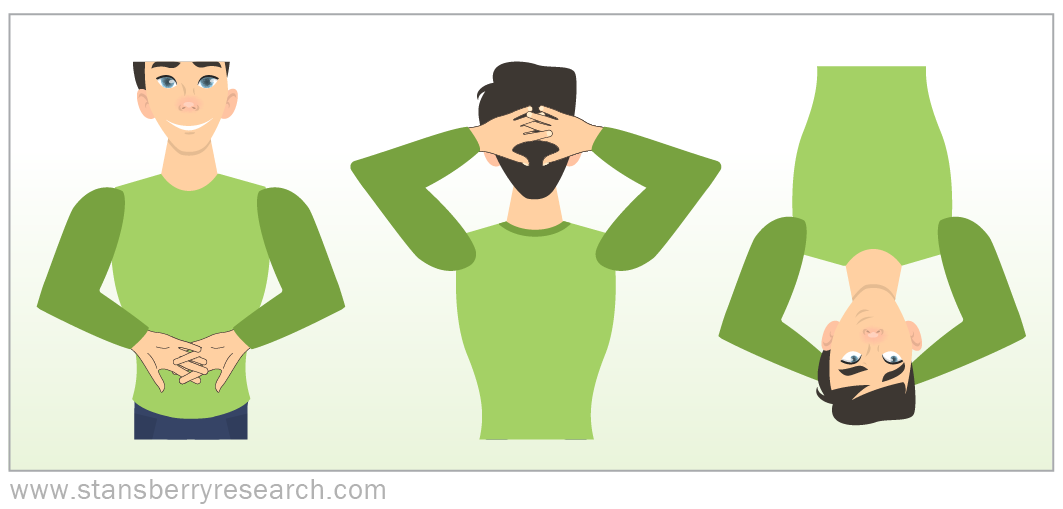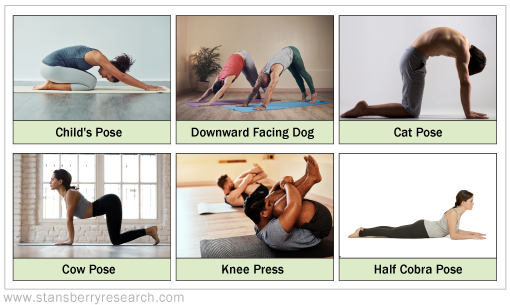You don't need to run a marathon for a satisfying workout...
Years ago in medical school (when I was in my early 40s), some classmates and I joined a few yoga classes. Things didn't turn out how I expected. After our first few sessions, we found ourselves incredibly sore and achy (maybe in part because we'd been competing against each other and the heavily tattooed instructor). But as a three-time marathon runner (and finisher), I was surprised that after that second yoga class, I was the sorest I've ever been.
This wasn't my first time trying yoga. That happened during my college years back in 1976. But it was when I realized how incredible a workout yoga can be. But the best part is that you can tailor it to your needs and abilities. You can go as easy or as hard as you want. And it's not just working out your muscles...
In fact, yoga and stretching help activate a very important part of our neurological anatomy... your vagus nerve.
And mastering this nerve's activity can make life better. That's because the vagus nerve connects your brain to your major organs. It's how your body transmits messages to your brain and receives messages from it. It's an essential superhighway that impacts so many aspects of your well-being.
The vagus nerve has three primary roles:
- It communicates with the brain.
- It sends messages from the brain to other organs in the body.
- It sends messages from the organs in the body to the brain.
The vagus nerve is a main component of the section of the nervous system that makes digestion happen – called the enteric nervous system (or the "ENS").

The vagus nerve connects your brainstem to the major organs in your body. It stretches throughout the body and includes a branch to the heart. A 1988 Scandinavian study showed that stimulating the vagus nerve with electricity immediately increased the oxytocin levels in the blood. Other research has shown that the simple act of touching someone also stimulates this nerve and slows down your heart rate.
Finally, the vagus nerve controls the activation of something called the HPA axis (named for the connection between the hypothalamus, pituitary gland, and adrenal gland). This axis responds to stress and triggers a multitude of bodily reactions.
Improving Your Vagal Tone
The efficiency and function of your vagus nerve is referred to as your vagal tone. If your vagal tone is high, your nerve is doing its job well. However, if your vagal tone is low, you may be experiencing some problems. When you have a high vagal tone, your heart rate will increase slightly when you inhale and decrease slightly when you exhale. This measure is called resting heart rate variability ("HRV").
Some things that can go wrong when you have low vagal tone or damage to your vagus nerve include:
- Inflammation and inflammatory conditions (like heart disease, diabetes, cancer, arthritis, irritable bowel syndrome, and more)
- Depression
- Anxiety
- Bad moods and loneliness
- High blood pressure and stroke
- Irregular blood-sugar levels
- Chronic fatigue
- Autoimmune disorders
- Celiac disease and gluten sensitivity
- Fainting
- Epilepsy
- Nausea, bloating, and gastroparesis (when the stomach empties too slowly)
You get the idea. It makes sense because the vagus nerve comes in direct contact with so many of the body's vital organs, as you saw in the image above.
Basically, if you want to keep your body and organs running smoothly, you need to take care of your vagus nerve. But it's something I doubt most folks have even heard of. And toning your vagus nerve is as easy as doing some yoga – one of my favorite daily activities (if I can squeeze it in).
In fact, studies show that your HRV – an indicator of good vagal tone – is positively impacted through yoga. A 2022 study examined the effects of one-on-one yoga therapy on folks with cancer after six weekly classes. The researchers found that yoga improved participant HRV as well as lowered their stress and anxiety.
Yoga involves a range of activities (like breathwork and flexibility) that integrate the mind and the body – just like the vagus nerve integrates your mind and body.
Stretching your neck and spine allows more blood to flow into your brainstem, which in turn improves vagus-nerve function. A simple stretching exercise to activate the vagus nerve – offered by Stanley Rosenberg in his book Accessing the Healing Power of the Vagus Nerve– goes like this:

- Interlace your fingers.
- Put your hands with your interlaced fingers at the base of your head (just above your neck).
- Lie flat on your back with your hands behind your head.
- Look – with just your eyes – as far as you can go to the right.
- Hold your eyes in this position until you feel a sigh, swallow, or yawn come on (about 30 to 60 seconds).
- Move your eyes back to neutral (straight ahead) for a moment.
- Then repeat steps 4 and 5 for your left side.
Opening up your chest and moving the muscles behind your eyes through this stretching exercise tones your vagus nerve and enhances your social engagement.
I often stretch my neck from side to side and move my shoulder blades closer together to shake the kinks out of my upper back. I am also a big fan of stretching and doing yoga. In fact, some of my favorite yoga moves you might already be familiar with.

The cat/cow yoga movements are another great way to start building flexibility in your neck and spine.
I also love child's pose and downward facing dog. The cat-cow combination is a great starting point before any sort of exercise because you learn how to focus on breathing. It is easy, simple, and effective... Do it repeatedly for a few minutes before or after any sort of exercise.
By toning your vagus nerve, you'll vastly improve your life. Do what I do and get your inner yogi on. I cannot stress this enough as an important tool for longevity. Join a class! If you're 55 or older, check out your local senior center for yoga classes and sign up. Or if you prefer to do yoga alone, find a beginner yoga video on YouTube and give it a try.
Let us know your favorite ways to tone your vagus nerve with an e-mail to [email protected]. And be sure to check out the "What We're Reading" section for our article that has even more ways to tone that wonderful vagus of yours.
What We're Reading...
- Six secrets for a better sex life.
- Something different: Why these toads have turned to cannibalism.
Here's to our health, wealth, and a great retirement,
Dr. David Eifrig and the Health & Wealth Bulletin Research Team
June 14, 2022
